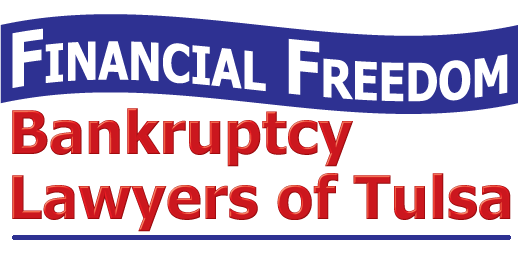Oklahoma Bankruptcy HelpFact Check: Bankruptcy Can Discharge All Types of Debt
 Bankruptcy is a legal process that allows individuals and businesses to eliminate or repay their debts under the protection of the bankruptcy court. It provides a structured and legally recognized way for debtors to address their financial challenges and obtain relief from unmanageable debt.
Bankruptcy is a legal process that allows individuals and businesses to eliminate or repay their debts under the protection of the bankruptcy court. It provides a structured and legally recognized way for debtors to address their financial challenges and obtain relief from unmanageable debt.
Many people believe that all types of debt can be discharged through bankruptcy. However, this is actually not the case. Although there are many types of dischargeable debts some types of debt cannot be discharged in bankruptcy.
Unsecured Debts: Credit Cards, Medical Bills, Personal Loans
Bankruptcy can discharge a wide range of unsecured debts, providing significant relief for debtors. Unsecured debts are those not backed by collateral and include:
- Credit Card Debt: One of the most common types of debt discharged in bankruptcy.
- Medical Bills: Often a major financial burden, especially for those without insurance.
- Personal Loans: Loans taken out without collateral can be discharged, freeing debtors from these obligations.
Certain Older Tax Debts
In some cases, bankruptcy can discharge certain older tax debts. These include federal income taxes that meet specific criteria, such as being at least three years old, having been filed on time, and meeting other conditions. Consulting with an Tulsa bankruptcy attorney is crucial to understanding whether your tax debts qualify for discharge.
Child Support, Alimony, Certain Tax Debts
While bankruptcy provides significant relief, certain debts are non-dischargeable. These include:
- Child Support and Alimony: Obligations related to family support are not dischargeable in bankruptcy.
- Certain Tax Debts: Not all tax debts can be discharged. Recent tax debts and those related to fraud or evasion are generally non-dischargeable.
Student Loans, Except in Special Circumstances
Student loans are notoriously difficult to discharge in bankruptcy. However, discharge is possible in cases of “undue hardship,” which requires proving that repaying the loans would impose severe financial hardship on the debtor and their dependents. This is a high threshold to meet, and having a knowledgeable bankruptcy attorney in Oklahoma is essential to navigate this challenging process.
Consulting with a Tulsa bankruptcy lawyer is crucial for understanding which debts can and cannot be discharged in Oklahoma bankruptcy under either Chapter 7 or Chapter 13 procedures. Each case is unique, and professional guidance ensures you are fully informed about your options and potential outcomes.
The Bankruptcy Process in Oklahoma
The bankruptcy process begins with an initial consultation with a Tulsa bankruptcy attorney in Oklahoma. During this meeting, the attorney will assess your financial situation, explain your options, and help you decide whether bankruptcy is the right choice for you.
Once the decision to file for bankruptcy is made, your Tulsa bankruptcy attorney will help you prepare the necessary paperwork and file your case with the Oklahoma bankruptcy court. After filing, a meeting of creditors, also known as a 341 meeting, will be scheduled. During this meeting, creditors can ask questions about your financial affairs and the bankruptcy process.
Your Tulsa bankruptcy lawyer will guide you through every step of the process, from filing the initial paperwork to representing you in court. They will ensure that all legal requirements are met, protect your rights, and work to achieve the best possible outcome for your case.
The ultimate goal of bankruptcy is the discharge of debts, which releases you from personal liability for certain specified debts. Once the bankruptcy process is complete and the debts are discharged, you can begin the process of rebuilding your financial life.
What Happens After Bankruptcy?
Filing for bankruptcy will have an impact on your credit score, typically lowering it significantly. However, the effect is not permanent. Over time, you can rebuild your credit with responsible financial management.
A bankruptcy attorney in Tulsa, Oklahoma can provide valuable guidance on rebuilding your credit after bankruptcy. This can include strategies for managing your finances, obtaining new credit responsibly, and improving your credit score over time.
Bankruptcy offers a fresh start, allowing you to eliminate or restructure your debts and regain control of your financial future. It provides an opportunity to move forward without the burden of overwhelming debt.
Do I Need An Oklahoma Bankruptcy Attorney?
Bankruptcy law is complex and constantly evolving. Navigating the legal requirements and understanding your rights and obligations requires professional expertise. An Oklahoma bankruptcy attorney has the knowledge and experience to guide you through this challenging process.
Having a knowledgeable and experienced Tulsa bankruptcy attorney by your side ensures that you receive accurate advice, protect your rights, and achieve the best possible outcome for your case. They can help you avoid common pitfalls and navigate the complexities of bankruptcy law with confidence.
Contact a Debtline Law Tulsa Bankruptcy Attorney Now
Debtline Law Office specializes in bankruptcy law and has a proven track record of helping clients achieve financial relief. Our experienced attorneys are dedicated to providing personalized legal advice and representation, ensuring that you receive the support and guidance you need throughout the bankruptcy process.
If you are considering bankruptcy, it is essential to seek legal advice from a qualified Oklahoma bankruptcy attorney. Debtline Law Office offers free consultations to help you understand your options and make informed decisions about your financial future.
For personalized legal advice and representation, contact Debtline Law Office today to schedule your consultation by calling (918) 786-9600.




